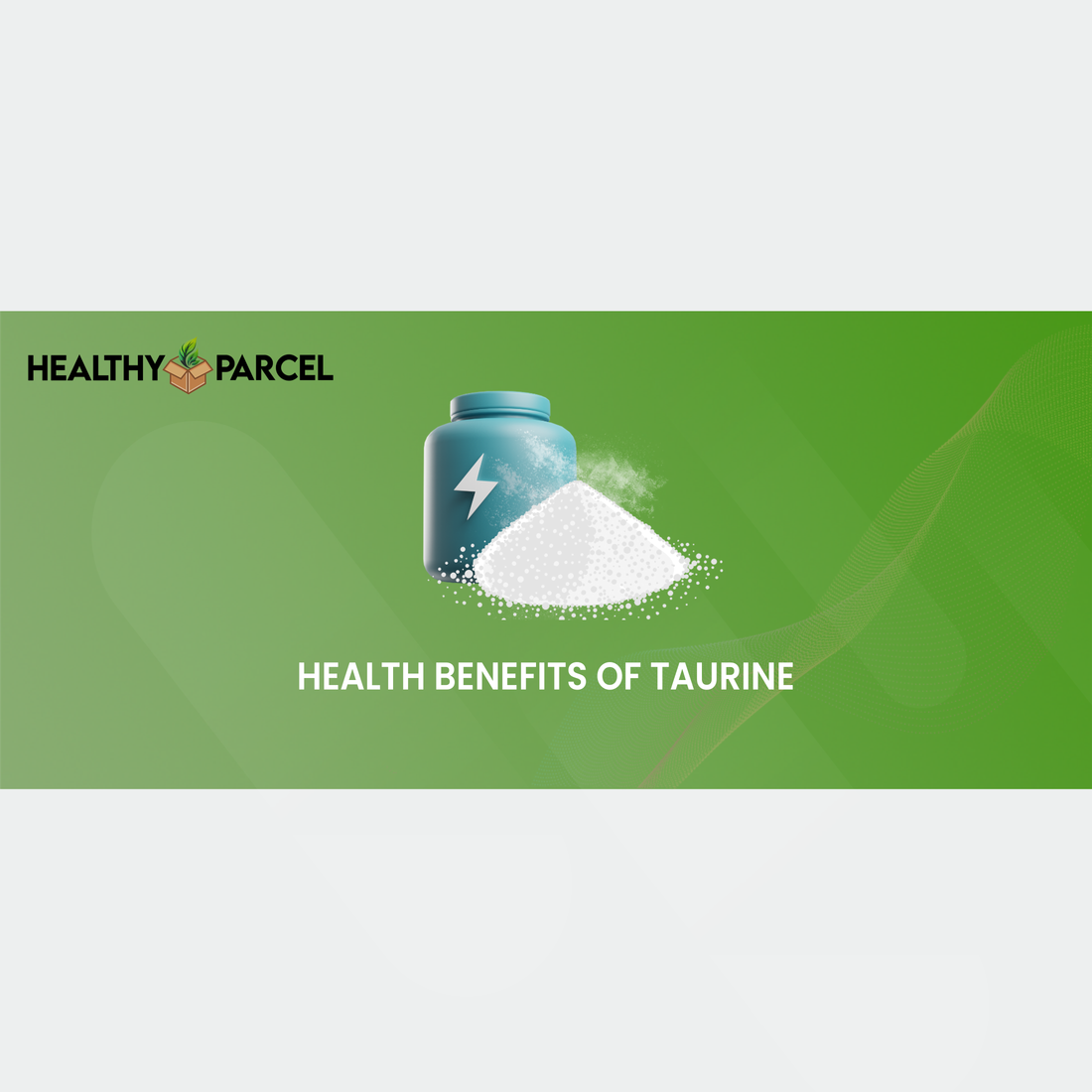What is Taurine?

Taurine, an essential amino acid for humans, plays a unique role in our bodies. While most amino acids link up to form proteins, taurine stands out. Its functions include:
- Aiding in the creation of bile salts, which help absorb fats and rid the body of cholesterol, hormones, and toxins through waste.
- Maintaining cell hydration, electrolyte balance, and cell membrane stability, crucial for cell function.
- Supporting nerve and muscle health and regulating internal cellular processes.
- Serving as a potent antioxidant and anti-inflammatory agent.
- Contributing to immune system strength.
Sources of Taurine

Originally isolated from ox bile in 1827, taurine derives its name from the Latin word for bull or ox, "taurus." While it's present in high levels in bull testicles, the primary dietary sources are fish, seafood, meat, and dairy. Plant-based foods generally contain low levels of taurine, making vegans more likely to have lower taurine levels unless they take a supplement.
Additionally, our bodies produce taurine, mainly in the liver, from cysteine, another amino acid. However, this production may decrease during times of stress or health challenges like liver issues, obesity, or infection. Infants and children are also prone to lower taurine levels since they may not produce enough, especially premature newborns.
Given its vital role and potential limitations in endogenous production, taurine is considered conditionally essential. This means that while our bodies can usually produce enough under normal circumstances, ensuring adequate intake through diet or supplements becomes crucial in certain situations. Other conditionally essential nutrients include coenzyme Q10, alpha-lipoic acid, carnitine, and glucosamine.
Health Benefits of Taurine

Taurine has garnered quite a reputation, especially with its widespread use in energy drinks. Amidst urban legends, there's solid scientific evidence supporting its pivotal role in fostering health and vitality.
Take mitochondria, for instance, the cellular powerhouses responsible for energy production. Taurine plays a crucial role in maintaining their health. Research indicates that low mitochondrial function correlates with accelerated aging, metabolic issues, cardiovascular problems, and diminished physical and mental vigor. Various studies, both experimental and clinical, highlight taurine's ability to bolster mitochondrial function. These findings suggest that some of taurine's health perks stem from its support for energy production.
Peak Physical Performance

Taurine doesn't just stop at mitochondria; it also aids in muscle function. It's been shown to enhance muscle contractions and stave off fatigue, potentially improving physical performance. A comprehensive review of 19 clinical trials found that taurine supplementation led to:
- Enhanced oxygen utilization.
- Prolonged endurance.
- Reduced exercise-induced muscle damage.
- Speedier recovery.
- Improved strength and power.
Heart Health Booster

Beyond muscles, taurine extends its benefits to the heart. Population studies hint at a link between higher taurine intake and heart health. Clinical trials supplementing with taurine have shown several cardiovascular perks. This includes better blood pressure regulation, improved heart function, and maintenance of healthy cholesterol levels. For instance, a study administering 500 mg of taurine thrice daily for two weeks observed significant reductions in total cholesterol, triglycerides, and C-reactive protein—a marker of inflammation.
Liver Health and Brain Health

Taurine boasts well-documented advantages for liver and brain well-being. It serves as a shield against various toxins like pesticides and herbicides, safeguarding these vital organs. In the liver, not only does taurine fend off harm, but it also aids in detoxification. Similarly, in the brain, taurine acts as a defender, shielding cells from toxins and oxidative stress. Moreover, it prevents the accumulation of blood ammonia, which can wreak havoc on both liver and brain health.
Balancing Insulin Sensitivity
Taurine supplementation has exhibited promise in enhancing tissue responsiveness to insulin, crucial for regulating blood sugar and appetite. Its antioxidant and anti-inflammatory properties play a significant role in this regard. In addition, taurine seems to boost adiponectin levels, a hormone derived from fat cells that promotes insulin sensitivity. Animal studies further suggest that taurine may aid in weight management by curbing fat accumulation, although direct evidence in humans is lacking as of now.
Retinal Health

Taurine emerges as a pivotal player in the development and maintenance of brain and nerve cells, especially in the retina—the nerve tissue vital for vision. The retina harbors the highest concentration of taurine in the human body, particularly in the outer region where light is transformed into nerve signals. Taurine's presence is crucial not only for the retina's growth but also for its functionality and defense against oxidative stress. Insufficient taurine levels in the retina could lead to degenerative eye conditions.
Taurine: From Theory to Practice
While the body can synthesize taurine, relying solely on internal production may fall short, especially in meeting the demands of the retina. Studies suggest that dietary taurine is imperative for optimal retinal function. Intriguingly, deficiencies in taurine have been linked to impaired vision, emphasizing its importance.
Considering its multifaceted benefits—ranging from bolstering mitochondrial function to safeguarding photoreceptors—taurine supplementation emerges as a logical choice for supporting retinal health. Animal trials and human studies alike underline the potential of taurine to bolster retinal well-being, suggesting a promising avenue for vision care.
Conclusion
Taurine stands out as a crucial amino acid with specialized roles, including facilitating fat absorption, regulating cell hydration, and bolstering nerve function. While abundant in meat, seafood, and dairy, plant-based diets typically offer less taurine. While the body can manufacture taurine, supplementation might be warranted under specific circumstances.

